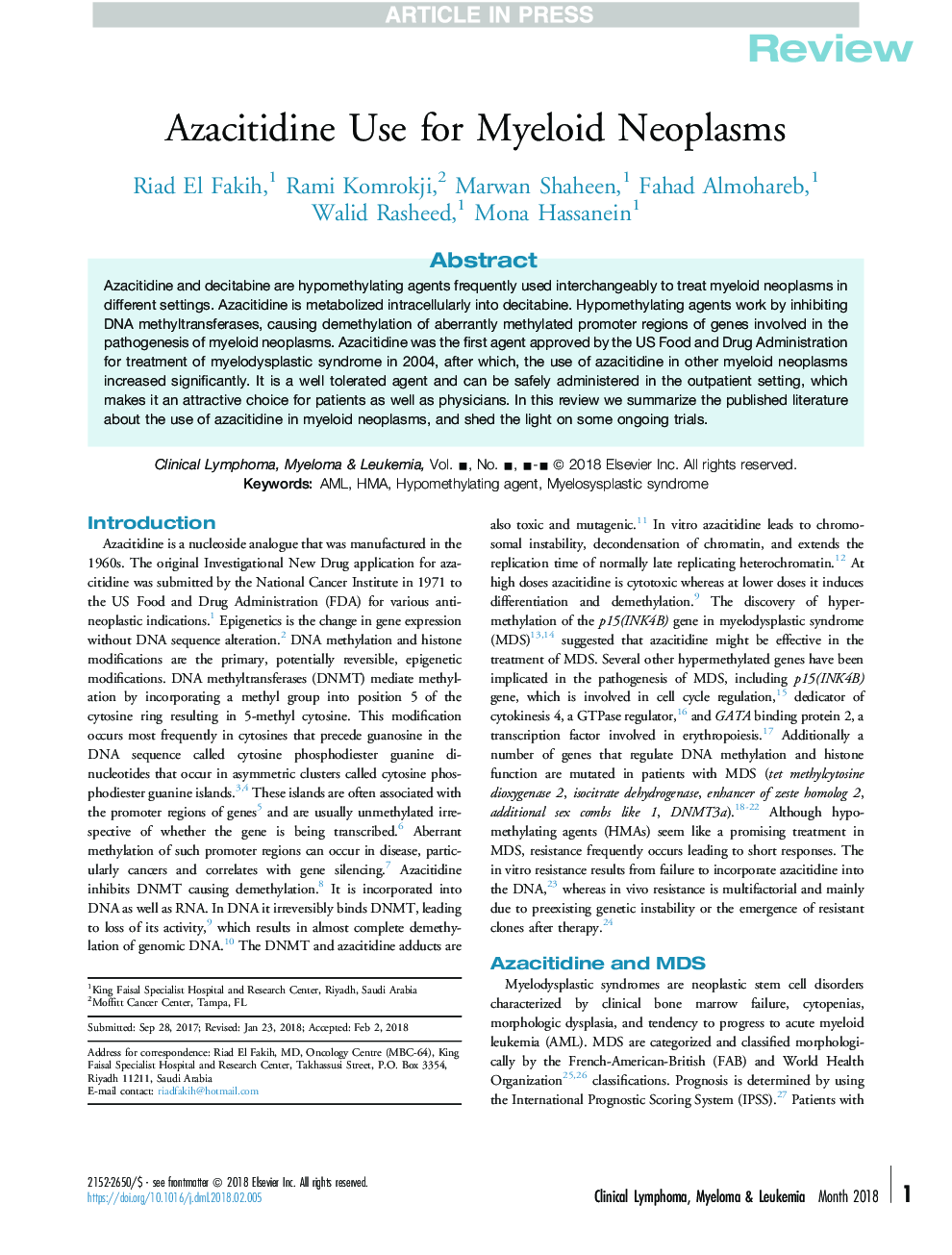| Article ID | Journal | Published Year | Pages | File Type |
|---|---|---|---|---|
| 8615538 | Clinical Lymphoma Myeloma and Leukemia | 2018 | 9 Pages |
Abstract
Azacitidine and decitabine are hypomethylating agents frequently used interchangeably to treat myeloid neoplasms in different settings. Azacitidine is metabolized intracellularly into decitabine. Hypomethylating agents work by inhibiting DNA methyltransferases, causing demethylation of aberrantly methylated promoter regions of genes involved in the pathogenesis of myeloid neoplasms. Azacitidine was the first agent approved by the US Food and Drug Administration for treatment of myelodysplastic syndrome in 2004, after which, the use of azacitidine in other myeloid neoplasms increased significantly. It is a well tolerated agent and can be safely administered in the outpatient setting, which makes it an attractive choice for patients as well as physicians. In this review we summarize the published literature about the use of azacitidine in myeloid neoplasms, and shed the light on some ongoing trials.
Keywords
Related Topics
Health Sciences
Medicine and Dentistry
Anesthesiology and Pain Medicine
Authors
Riad El Fakih, Rami Komrokji, Marwan Shaheen, Fahad Almohareb, Walid Rasheed, Mona Hassanein,
